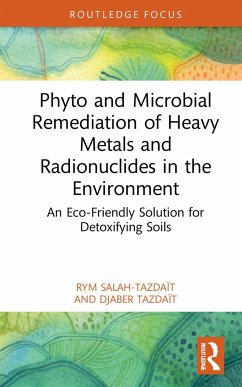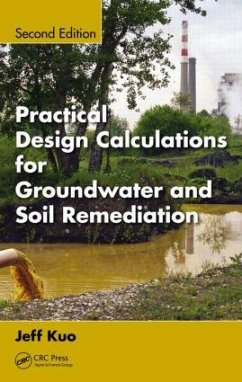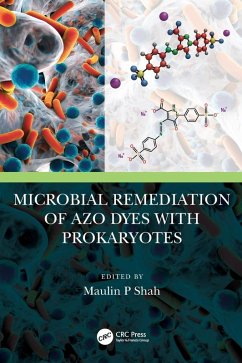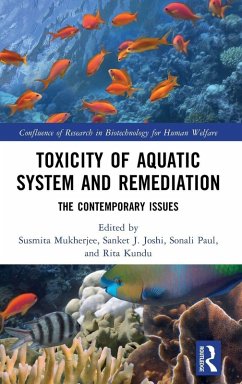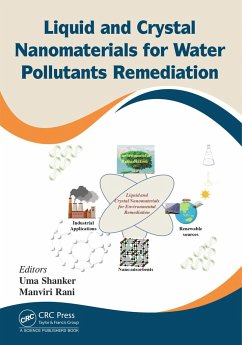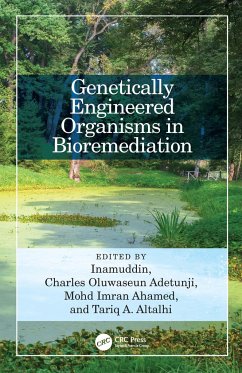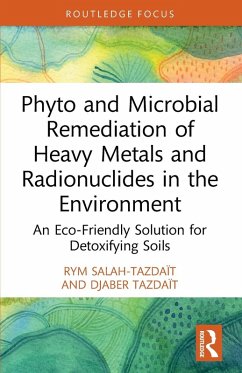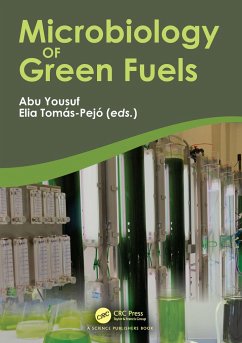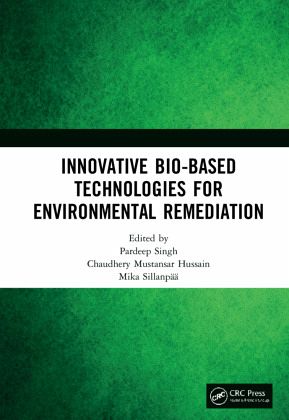
Innovative Bio-Based Technologies for Environmental Remediation
Versandkostenfrei!
Versandfertig in 6-10 Tagen
170,99 €
inkl. MwSt.
Weitere Ausgaben:

PAYBACK Punkte
85 °P sammeln!
Innovative Bio-Based Technologies for Environmental Remediation explores the recent applications of both the latest and broad practical and theoretical aspects of environmental remediation with an aim to combine various innovation-based biotechnology for waste management, waste minimization, and waste to economy.This book summarizes the recent progress of bio-based technologies for environmental remediation at both an experimental and a theoretical model level. An emphasis has been made on trends and the probable future of sustainable techniques to reduce waste and harmful compounds from the e...
Innovative Bio-Based Technologies for Environmental Remediation explores the recent applications of both the latest and broad practical and theoretical aspects of environmental remediation with an aim to combine various innovation-based biotechnology for waste management, waste minimization, and waste to economy.
This book summarizes the recent progress of bio-based technologies for environmental remediation at both an experimental and a theoretical model level. An emphasis has been made on trends and the probable future of sustainable techniques to reduce waste and harmful compounds from the environment. Biological-based technologies have low operating costs and involve direct degradation of organic pollutants without the release of toxic intermediates. Recent applications covered in this book include process intensification in bio-based approaches, green technology, phytoremediation, biopolymers, biosurfactants for environmental applications, and other bio-based technologies with sustainable design and the future of remediation are also discussed.
This book is an important reference source for environmental scientists and engineers who are seeking to improve their understanding of how bio-based technologies are playing an increasingly important role in environmental remediation. It brings together recent innovations and practices of bio-based technologies for environmental remediation, outlines major bio-based technologies, and discusses biopolymers and biosurfactants for environmental management.
This book summarizes the recent progress of bio-based technologies for environmental remediation at both an experimental and a theoretical model level. An emphasis has been made on trends and the probable future of sustainable techniques to reduce waste and harmful compounds from the environment. Biological-based technologies have low operating costs and involve direct degradation of organic pollutants without the release of toxic intermediates. Recent applications covered in this book include process intensification in bio-based approaches, green technology, phytoremediation, biopolymers, biosurfactants for environmental applications, and other bio-based technologies with sustainable design and the future of remediation are also discussed.
This book is an important reference source for environmental scientists and engineers who are seeking to improve their understanding of how bio-based technologies are playing an increasingly important role in environmental remediation. It brings together recent innovations and practices of bio-based technologies for environmental remediation, outlines major bio-based technologies, and discusses biopolymers and biosurfactants for environmental management.






